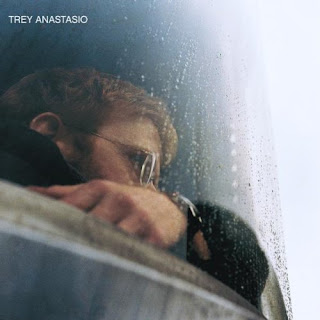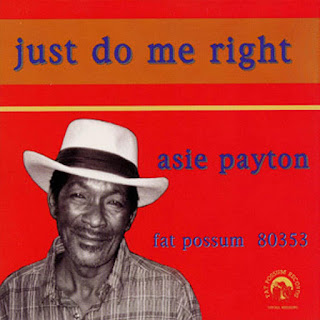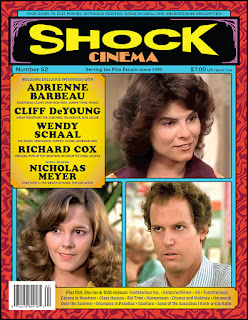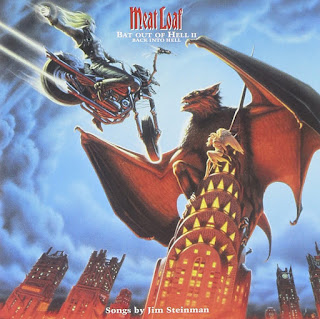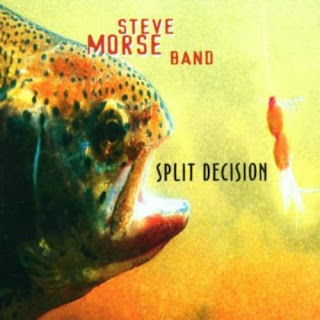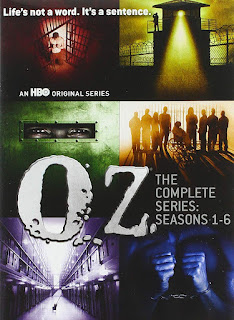Friday, July 28, 2023
Archive Review: Henry Kaiser & David Lindley's A World Out Of Time, Volume 2 (1993)
A World Out Of Time, Volume 2 picks up where its predecessor left off, showcasing the talents of the many musicians of Madagascar, often accompanied by Kaiser and Lindley, and as captured by a pair of German producers in their portable studio. The results are simply beautiful, the seventeen songs presented here illustrating the diversity of the island’s musical heritage, which ranges from traditionally-oriented Malagasy Folk to a more Western-influenced pop style. Most of the songs included here, however, showcase a musical identity entirely indigenous to this island paradise, their melodies and rhythms as lush and complex as the rural countryside they spring from. Plans are for Shanachie to release a third volume in this series in the future. Albums from a number of Malagasy artists are also available from Shanachie. (Shanachie Records, 1993)
Review originally published by R.A.D! Review and Discussion of Rock ‘n’ Roll zine, December 1993
The View On Pop Culture: Trey Anastasio, Asie Payton, Bruce Springsteen (2002)
I’ve never been the biggest Phish “phan” on the block, but these critical ears of mine can certainly appreciate the popular jam band’s chops. Anybody who can steal the Grateful Dead’s shtick and update it for a modern audience gets at least a B+ in my gradebook anyway. If you carefully dissect the Vermont foursome’s extensive catalog of songs, you’ll hear influences every bit as diverse as those shown by Jerry Garcia and crew over the Dead’s thirty year lifespan. Thus it should come to no surprise that for his second proper solo album, Phish guitarist Trey Anastasio mixes up the recipe even further, sounding not a lick like the band he fronts, but not really sounding like anybody else out there on the pop music landscape, either.
Trey Anastasio (Elektra Records), the album, is a fine showcase for Anastasio’s wide-ranging talents. The self-titled solo turn provides the critically acclaimed guitarist a chance to experiment with new styles, to take his playing into new directions, and Anastasio lives up to the challenge. The dozen tracks here provide a veritable musical playground for the listener to enjoy. “Push On ‘Til Day” serves up a brassy, big band sound upon which Anastasio layers his nimble-fingered leads while “Night Speaks To A Woman” offers a dark, funky, seventies-styled groove. “Mr. Completely” pairs swirling, psychedelic riffs with some interesting vocal gymnastics and “Ray Dawn Balloon” is a gentle, pastoral exercise in instrumental virtuosity. On the opening track, “Alive Again,” Anastasio sings above the infectious island rhythms, “summer is coming and I’d like a review.” Well, here it is Trey – this is one album well worth your investment of time and money, something intelligent to listen to for a change.
Asie Payton was a classic Mississippi bluesman, but he never really pursued a career in the blues. The Holly Ridge, Mississippi native worked on his farm for sixty years, seemingly more comfortable riding a tractor than in touring or recording. He would play for friends or occasionally perform at fellow bluesman Junior Kimbrough’s juke joint, but he didn’t seek fame and fortune. The folks at Fat Possum Records managed to get two sessions out of the elusive Payton before he died in 1997, released in 1999 as the Worried album. Now they’ve managed to piece together a rock-solid collection of individual performances for Just Do Me Right (Fat Possum Records), which cements Payton’s reputation as an original and dynamic performer.
Using low-fi recordings made in Payton’s home, some of the tracks have instrumentation added to Payton’s soulful vocals and stinging six-string work. Purists might argue that such mucking around with the original performances dilutes the energy of the music, but personally I feel that the addition of such minimal flourishes as found on Just Do Me Right does nothing to subtract from Payton’s brilliance. A traditionally oriented blues player, Payton drew from a number of sources and influences including Charley Patton and Robert Johnson, but in spite of his geographical proximity to North Mississippi Hill Country artists such as Kimbrough and R.L. Burnside, he sounds nothing like them. Instead, Payton brings a sort of primitive funk to his material, a syncopated sound and ethereal ambiance that defines songs like “You Got Me Doin’ Things” or “Lose My Happy Home.” Just Do Me Right proves that Payton was a unique and talented artist. Although not very well known by the blues community, Asie Payton nevertheless deserves a wider consideration of his legacy.
When fans heard that Bruce Springsteen was getting the E Street Band back together for an extended tour that would run across 2000 and 2001, excitement was rampant as rumors of set lists and performance dates skittered across the Internet like so many madcap snipe. The successful tour and its accompanying album have come and gone from the pop consciousness, but the recently-released Live In New York City (Columbia Music Video) double-DVD set should make fans sit up and take notice once again. Filmed during the last two nights of Springsteen’s triumphant sold-out ten-night stand at Madison Square Garden for an HBO cable special, the DVD set provides viewers with a front row seat to one of the greatest rock ‘n’ roll shows they’ll ever see.
Live In New York City’s first disc features fourteen performances from the two nights filmed while the second disc offers up eleven songs never shown on the cable broadcast. Playing with a fury and a passion twice that of rockers half their age, Springsteen and the E Street Band relive their professional childhood with electric performances of classic cuts like “The River,” “Atlantic City,” “Born To Run” and “Jungleland.” Showing why he was chosen to fill “Miami” Steve Van Zandt’s rather considerable shoes in the first place, guitarist Nils Lofgren rips through a solo at the end of the haunting “Youngstown” that will make your hair stand up on end.
The rest of the old gang is here, too, with “Mighty” Max Weinberg drumming faster and louder than a bus full of clowns, Van Zandt holding up the bottom end on rhythm guitar and the “Big Man,” Clarence Clemons, providing musical and spiritual support. As good as the reunited E Street Band is; however, it is Springsteen’s talents as a performer that captivates audiences. One of rock’s most charismatic performers, Springsteen holds the audience in his hand from the first drumbeat through the last ringing riff. This is pure, undiluted rock ‘n’ roll, Live In New York City a performance primer for young artists who want to see how it is done by the big boys. (View From The Hill, May 2002)
Friday, July 21, 2023
Archive Review: Nik Turner's Sphynx (1993)
With a band that includes a former Hawkwind mate, guitarist Helios Creed, Turner has created a truly amazing musical reality. This seventy-minute sojourn will take you across the desert sands to the Great Pyramid, with proper attention and homage paid to the old gods Anubis, Isis. and Osiris along the way. Through timeless invocations and poetic sacrifice, Turner has made Sphynx a beautiful tapestry of otherworldly psychedelia, hallucinogenic rhythms, synthesized sound and cold chrome guitar riffs. It is an invigorating, mind-expanding journey, a complex and exciting experience that you’ll want to delve into again and again, as the music and your imagination both come alive in a blur of color and reality. (Cleopatra Records, 1983)
Review originally published by R.A.D! Review and Discussion of Rock ‘n’ Roll zine, December 1993
The View On Pop Culture: Uncle Tupelo, Black Tape For A Blue Girl, Steve Puchalski’s Shock Cinema (2002)
While most of the early ‘90s pop culture world was mesmerized by the sounds emanating from the unlikely rock ‘n’ roll nexus of Seattle, another musical revolution was quietly taking shape in the American heartland. While Northwestern artists like Nirvana and Pearl Jam were fusing punk, heavy metal and hard rock into the sound that came to be termed as “grunge,” Uncle Tupelo – hailing from Belleville, Illinois – were blazing trails of their own. Featuring two extremely talented songwriters in the persons of Jay Farrar and Jeff Tweedy, Uncle Tupelo’s 1990 debut album, No Depression, would become a touchstone of the alternative country movement.
No Depression, named for an ancient Carter Family gospel tune, would spawn an AOL newsgroup and a magazine of the same name, both dedicated to the fledgling alternative sound known as “insurgent country” or “no depression” music. Over the course of four albums, Uncle Tupelo would build a fanatically loyal following with their blend of traditional country twang, punk fury and roots rock. Although not the first band to walk that path, they took the musical hybrid to the next level, inspiring a generation of bands like Slobberbone, Whiskeytown, the Old 97s and others that would follow. When lifelong friends Farrar and Tweedy became estranged after the 1993 release of Anodyne, the band’s fourth album, Uncle Tupelo split into two factions – Farrar forming Son Volt and Tweedy taking the remaining band members and forming Wilco.
For such an influential, original and groundbreaking band as Uncle Tupelo, their recorded catalog has been in disarray for years. With the recent release of 89/93: An Anthology (Legacy Recordings), the process has begun to restore the catalog to the level of importance it deserves. With 21 songs culled from the band’s too-short lifespan, this collection serves as a fine introduction to the special magic that was Uncle Tupelo. Kicking off, appropriately enough, with “No Depression,” the anthology runs roughly in chronological order, offering album tracks, rare B-sides, unreleased songs and live performances that should thrill even the most hardcore fan. Tweedy and Farrar often walked a creative tightrope, the tension between their rock roots and country aspirations evident in original songs like “Graveyard Shift,” “Grindstone” and “Chickamauga.” The pair sung of working class blues, drunken regrets, heartbreak and crappy jobs with a passion and energy that connected with audiences across the musical spectrum. After 89/93: An Anthology, Legacy Recordings will also reissue the band’s first three indie albums, remastered with bonus tracks and other goodies. One of a handful of great American bands, Uncle Tupelo deserves every accolade that’s been thrown at them.
Formed back in the mid-‘80s as a creative outlet for musician/composer Sam Rosenthal’s electronic art, Projekt Records has since taken on a life of its own. Mostly due to Rosenthal’s critically acclaimed band Black Tape For A Blue Girl, Projekt has attracted a loyal following of listeners who enjoy the label’s trademark mix of ambient soundscapes, electronic experimentation and Goth-influenced rock from artists like Voltaire, Steve Roach, and Human Drama. Over the course of close to a dozen albums, Black Tape For A Blue Girl has become the label’s flagship band; a status reinforced by the recent release of The Scavenger Bride (Projekt Records), Rosenthal’s and Black Tape’s most ambitious effort to date.
Rosenthal finds his lyrical inspiration in a number of places, from film and literature, writers like Franz Kafka and the ancient composers who have inspired the artist’s electronic fascinations. Much like previous Black Tape For A Blue Girl albums, The Scavenger Bride is a multi-textured portrait in sound, each individual song the canvas upon which Rosenthal and musicians Lisa Feuer, Julia Kent, Vicki Richards and Elysabeth Grant layer their instrumental colors. The resulting songs are often breathtaking, Rosenthal’s deep voice matched by Grant’s ethereal vocal styling. The instrumentation on songs like “Kinski,” “The Scavenger Bride” or “Bastille Day 1961” is simply mesmerizing, deceptively quiet and subconsciously soothing. A modern day composer without peer, Sam Rosenthal continues to amaze, creating a new classical music with Black Tape For A Blue Girl. Unlike any other album you’re likely to hear this year, it’s well worth seeking out The Scavenger Bride among the usual dreck at your favorite music store.
So you’re a movie nut, a film fanatic, an honest-to-god fanboy (or fangirl) who watches the big screen to see thrilling special effects, violent fight scenes and stuff blowing up rather than to analyze a character’s motivation or the director’s obsessions. You already know that your tastes are ill served by the mainstream press – forget about checking out the latest issue of Premiere or Entertainment Weekly for the kind of meat and potatoes film coverage that you crave. For insightful interviews and lively movie reviews, look no further than Steve Puchalski’s Shock Cinema.
A movie zine with more character than a roomful of studio executives, Shock Cinema is a true labor of love by a crew of dedicated film fans. Issue #20 includes interviews with actors Michael Moriarty (best-known for his early stint on Law & Order), Joseph Turkel and Keith David, filmmaker Lee Frost and screenwriter W.D. Richter. Puchalski and his volunteer staff review dozens of movies in every issue, ranging from the sixties to the present. Past issues have featured interviews with cult heroes like Fred Williamson, James Remar, Russ Meyer and William Smith. For readers wanting a critical perspective well removed from the corporate entertainment press, as well as a healthy dose of B-movie history, Shock Cinema is the place to go. (View From The Hill, May 2002)
Friday, July 14, 2023
Archive Review: Meatloaf's Bat Out of Hell II: Back Into Hell (1993)
After a much publicized and highly public split, Steinman went on to write a handful of hits for artists like Bonnie Tyler, while Meatloaf recorded a bunch of albums (some good, some not-so-good) in a battle against obscurity. To the benefit of an audience still starved for the real rock thing, the duo has reunited to create a sequel to one of the most enduring albums in rock history.
Slapping Bat Out of Hell II: Back Into Hell onto the CD player is like being nineteen again. This is the elusive pulse of rock ‘n’ roll, that hard-to-capture spirit of the music and all of its promise that makes Bat Out of Hell II and its predecessor work so well. It’s like trying to tell a stranger about rock ‘n’ roll – if they don’t get it, chances are, they never will. This disc is loud, overblown and exaggerated, but it’s also got more hooks than a Bassmasters’ tournament and it rocks like a house afire. Even as history repeated itself and critics slagged Bat Out of Hell II, it shot straight up to number one upon its release.
The world is a different place than 1977, though, and this sequel reflects the urgency and identity of the decade. The cynicism of “Life Is A Lemon and I Want My Money Back,” the erotic fantasies of “Out of the Frying Pan (And Into the Fire),” the confusion of “It Just Won’t Quit” all play to a different time and place. It’s the two key cuts here, however – the idealistic, decade-old “Rock and Roll Dreams Come Through” and “Wasted Youth/Everything Louder Than Everything Else” – that serve as the youthful anthems around which all else revolves. It’s the energy, the hope provided by these songs, that attracts the audience. It’s what Meatloaf does best. It may be better to burn out than to fade away, and I’m glad that Meatloaf captured the chance to burn brightly again. (Epic Records/Cleveland International, 1993)
Review originally published by R.A.D! Review and Discussion of Rock ‘n’ Roll zine, December 1993
The View On Pop Culture: Steve Morse, Filthing Thieving Bastards, Tom Fontana's OZ (2002)
When fans discuss their favorite “guitar heroes,” they’ll toss out names like Jimi, Eddie V, or Stevie Ray. Younger fans may turn to fledgling bluesmen like Kenny Wayne Shepherd or one of the current crop of nu-metal sodbusters, but inevitably any true fan of the art of the six-string has to consider the enormous skills of Steve Morse. Virtually unknown to mainstream audiences, guitar virtuoso Morse has earned six Grammy nominations and has been voted “Best Overall Guitarist” an incredible five times by the readers of Guitar Player magazine. In a career that has spanned a quarter-century, Morse fronted the influential fusion band Dixie Dregs and spent two years during the 1980s with resurrected arena rockers Kansas. Most recently, Morse has lent his considerable talents to rock legends Deep Purple, filling the shoes once worn by Ritchie Blackmore and Tommy Bolin.
It is Morse’s solo work, however, that has earned him a reputation as one of the most underrated axemen in rock music. Since his 1984 debut album, Morse has continued to dazzle listeners and defy expectations with his constantly evolving talent. With Split Decision, Morse’s ninth solo album and his second for indie label Magna Carta, Morse continues on an upward career trajectory. Taking its title from the split personality of the album’s instrumentals, Split Decision is part hard-crunching rock ‘n’ roll and part jazz-rock fusion. It’s a delightfully eclectic mix of styles, Morse cranking out lightning-quick fretboard runs and power riffs on songs like “Mechanical Frenzy,” building on top of bassist Dave LaRue and drummer Van Romaine’s mighty rhythms. Less grandiose songs such as “Clear Memories” illustrate Morse’s ability in mixing jazz, rock, and classical guitar styles into one breathtaking song. The one thread that runs through all of the material is Morse’s easily identifiable sound – no other guitarist brings such clarity, tone and individual style to their playing as Steve Morse. If you want to hear a master musician at the top of their game, I’d recommend you give Steve Morse’s Split Decision a listen.
Originally conceived as a side project for Johnny Bonnel and Darius Koski of punk favorites the Swingin’ Utters, Filthy Thieving Bastards has taken on a life of its own with the addition of former Camper Van Beethoven guitarist Greg Lisher. With the release of A Melody of Retreads and Broken Quills (BYO Records), these rock ‘n’ roll veterans have created an unique mix of punk energy, country twang and traditional Celtic roots that is equally at home in either the alt-country or Irish-punk genres. Bonnel displays an impressive talent as a wordsmith, his clever, intelligent lyrics pairing the wit of Elvis Costello with the dark humor of Shane MacGowan. The band often comes across like a modern version of MacGowan’s infamous Pogues, matching Bonnel’s weary vocals with lilting Celtic-flavored instrumentation. The result is wonderfully complex songs like the philosophical “Death Is Not the End” or the lively “Bitter Old Son.” Although the Swingin’ Utters remain one of this scribe’s favorite punk rock outfits, it may be that Bonnel, Koski, et al have outgrown the genre’s limitations, freeing them to make magnificent new sounds with Filthy Thieving Bastards.
I would liked to have been a fly on the wall at the various television networks when Tom Fontana proposed his idea for the prison drama that became OZ. “Drugs, rape, murder?” I can hear the suits asking in disbelief, ‘cause in truth the average episode of OZ is filled with more violence, chaos and cruelty than the normal TV viewer will witness in their lifetime. It’s the gritty realism and disconcerting storylines set in the fictional Oswald Maximum Security Prison, however, that make OZ one of the best shows that the medium of television has ever produced. The brainchild of former Homicide: Life In the Streets scribe/producer Fontana and award-winning director Barry Levinson (Diner, Rain Man), the 3-DVD set OZ: The Complete First Season (HBO Home Video), sends viewers down the rabbit-hole into a terrifying wonderland.
An operatic tale of tragedy with little redemption, OZ is the story of the experimental “Emerald City” unit of Oswald, a “prison within a prison” that focuses on rehabilitation and is overseen by idealistic administrator Tim McManus (Terry Kinney). It’s not long into the eight-episode first season that McManus sees his ideals shot down as “M City” inmates, divided along racial and ethnic lines, engage in the same brutal behavior as seen in traditional prisons. Fontana’s writing is horribly realistic, but it’s the actors who bring OZ to life. The ensemble cast features recurring characters Warden Leo Glynn (Ernie Hudson), McManus, Sister Pete (Rita Moreno) and Governor James Devlin (Zeliko Ivanek). Inmates come and go (sometimes in body bags) throughout the story, but the first season features excellent performances by Dean Winters as the manipulative Ryan O’Reily, J.K. Simmons as racist Vern Schillinger and Eamonn Walker as the charismatic Muslim leader Kareem Said.
Although its storylines involve many inmates, the first season of OZ focuses on prisoner Tobias Beecher (played with incredible dexterity by Lee Tergesen). A middle-class lawyer convicted of vehicular homicide, Beecher is literally thrown to the wolves in a hell that even Dante couldn’t have imagined. Preyed upon by the sadistic Schillinger, addicted to drugs and tormented by guilt, the mild-manner Beecher becomes as violent and unpredictable as the other inmates in OZ. It’s an eerie evolution, well-written and well-acted by Tergesen. Since your humble columnist doesn’t have cable TV, I’ll have to wait until the second season of OZ is available on DVD to see how the prison riot that ends episode eight (originally aired in 1997) turns out. (View From The Hill, April 2023)
Friday, July 7, 2023
Archive Review: Steven Wilson’s Insurgentes (2009)
The erstwhile singer/songwriter/guitarist in front of neo-proggers Porcupine Tree, Wilson has so much music inside, knocking at the door waiting to be let out, that he can’t be constrained by just the efforts of his already-prolific full-time band. No, Wilson has also dabbled in side-projects such as Blackfield, his collaboration with Israeli musician Aviv Geffen, as well as No-Man with vocalist and songwriter Tim Bowness. Did I mention that he has also spend significant time hanging around the studio with Goth-metal cult faves Opeth? Or that he’s lent his musical and production skills to works by former Marillion frontman Fish and ex-Japan bassist Mick Karn?
Steven Wilson’s Insurgentes
Hell, he even sang behind Janet Jackson on “Rhythm Nation”! And it’s not like Wilson is a dilettante, sniffing around here and there and quickly abandoning projects…these side deals have, in some cases, lasted for years and have resulted in better than a dozen albums. Still, the release of Wilson’s solo album Insurgentes marks a distinct departure from his previous modus operandi. A full-length work more akin to a Porcupine Tree album than to much of his avant-garde personal wanderings, Insurgentes is his highest-profile solo album, Wilson’s most traditional and yet adventurous work to date.
Within the ten songs on Insurgentes Wilson has created a wealth of tone and texture, each composition a surprising carnival ride of the unexpected. The brilliant “Abandoner” is a moody, atmospheric piece with a fractured antique sound serving as a recurring riff upon which Wilson layers on subdued vocals, odd instrumentation, and percussive keyboards and synth. After lulling you into an unquiet sleep, the song suddenly explodes around the three-anna-half mark into a blazing white light roar before gently lapsing back into its languid state.
“Salvaging,” a lengthy soundscape, rages from pastoral to furious and back, and displays some of Wilson’s most expressive and deeply-cutting guitarplay as well as his most gentle composing skills. The disjointed and cacophonous “No Twilight Within the Courts of the Sun” is a dense, eight-minute clash of instrumentation that treads not-so-lightly into Sun Ra territory, admittedly from a rock perspective. Helped by prog royalty like bassist Tony Levin (King Crimson) and pianist Jordan Rudess (Dream Theater), the song’s unexpected twists-and-turns make for a challenging and, ultimately, rewarding work.
The Reverend’s Bottom Line
With Insurgentes, Steven Wilson has taken a giant step forward in favor of his solo career, capturing his unique vision with this intelligent collection of imagination, anger, and passion. Incorporating the electronic drone and avant-garde experimentation of much of his earlier solo work with the aggressiveness of hard rock and the virtuoso nature of progressive rock, Wilson has created in Insurgentes a hybrid, of sorts, certain to keep listeners scratching their heads and sighing in disbelief for some time. (Kscope Records, released March 22nd, 2009)
Review originally published by Blurt magazine, 2009
Buy the CD from Amazon: Steven Wilson’s Insurgentes
The View On Pop Culture: William Topley, Bad Religion, Jason & the Scorchers, Tron DVD (2002)
William Topley doesn’t receive much radio airplay, nor are gallons of ink spread on paper to champion the British artist’s music. Topley may not be a household name, but while better-known, lesser talents are dominating the charts, Topley quietly makes intelligent, beautiful music. Feasting With Panthers (Lost Highway) is Topley’s fourth album and one that finds the artist experimenting with differing musical forms and styles. Long-time fans have nothing to fear – Feasting With Panthers still contains plenty of the Tennessee Williams-steeped, Southern-fried blue-eyed soul that Topley is best known for. For these songs, though, Topley has expanded his artistic pallet, adding elements of island rhythms to songs like the reggae-tinged “Excuses” or the Cuban-inflected “La Habana.” The band is a top-notch group of professionals and Topley’s deep, passionate vocals caress his lyrics like a lover’s kiss. The best current artist that you’ve never heard, Feasting With Panthers is a great place for a newcomer to discover Topley’s music.
For over two decades now, Bad Religion has helped define the direction of punk rock. Although they may not have the sales of, say, Green Day or Blink 182, or even the hip cache of Rancid, Bad Religion’s influence on the genre is undeniable, and every album released by the band leaves its mark across the entire spectrum of punk rock. The Process of Belief (Epitaph Records) is no exception. The Process of Belief represents not only a reunion of Epitaph label owner and guitarist Brett Gurewitz with the band he left in 1994, but also a return to the ranks of the indie music world that Bad Religion played a major part in creating. The CD certainly won’t disappoint even the most hardcore punk enthusiast, jumping from 0 to 100 mph in seconds with the opening track, “Supersonic.”
From this point, it’s sheer sonic thrills and chills as Bad Religion runs through fourteen fast-and-furious tracks. “Bored & Extremely Dangerous” is a delightful take on alienation while “Kyoto Now!” assails the current administration’s environmental policy. Bad Religion might wear their social consciousness on their collective sleeves, but no other rock ‘n’ roll band brings as much intelligence and erudition to its material, and no vocalist other than Greg Graffin could cram so many syllables into a verse. With The Process of Belief, Bad Religion extends their legacy and raises the bar for other punk bands to follow.
Cowpunk pioneers Jason & the Scorchers enjoy a lofty standing within the indie rock ranks. They’ve received a minor degree of fame, with a series of critically acclaimed albums and hundreds of dynamic live shows beneath their belts. They made the jump from their own indie label to a major label back when a band’s credibility wasn’t instantly in question, later going bankrupt due to excessive label expenses. After a brief early ‘90s hiatus, the Scorchers returned to the indie world with a handful of brilliant, if underrated albums for Mammoth Records. Now they’ve come full-circle, releasing music on their own Courageous Chicken imprint through North Carolina indie Yep Roc Records. For these Nashville rock icons, it’s been a long strange trip, indeed.
This trip is partially documented by the recently released Wildfires + Misfires (Yep Roc). The disc is a collection of Scorchers’ obscurities, demos and alternative versions that provides listeners with greater insight into the band’s creative process. It documents the Scorchers’ evolution from brash young punks into one of rock’s most talented, if overlooked bands. The set kicks off with the demo version of “Absolutely Sweet Marie” that won the band a major label contract and also includes red-hot unreleased live tracks like “Tear It Up” with legendary guitarist Link Wray and crowd favorite “Lost Highway.” Rarities like “Too Much Too Young” and “Break Open The Sky” present the band in a different light while alternative takes of familiar songs like “If Money Talks” showcase the Scorchers’ range and abilities. Rather than a prurient look at a band’s past, Wildfires + Misfires is a vital collection of material that rewards loyal fans for their incredible dedication while presenting a living document of a work still in progress.
Back in the early 1980s, Disney was desperately trying to remain relevant in the face of increased competition. The studio hadn’t broken new artistic ground in a decade and was in danger of becoming a minor league player in the entertainment world. They rolled the dice on director Steve Lisberger’s pet project, and the film Tron (Disney DVD) was created. Although this radical, computer-assisted film was a relative disappointment at the box office, barely breaking even, it would prove to be an incredibly influential work of art. Watching Tron again on DVD, twenty years after its initial release, is a revelation. True, many of the effects look dated in the face of more recent computer-effects breakthroughs like The Matrix, but Lisberger and crew were there first, blazing the trail for others to follow.
A typical tale of good vs. evil, hacker/programmer Flynn (Jeff Bridges) finds himself trapped inside of what we now call cyberspace by nasty corporate CEO (David Warner) and a rogue software program. With the help of a defensive program named “Tron” (played with steadfast Dudley Doright bravery by Bruce Boxleitner), Flynn successfully competes on the “game grid” and defeats the dictatorial “Master Control” software. The effects are breathtaking, especially the computer-generated lightcycles, and the geometric design of the computer world is mind-boggling. The collector’s edition DVD includes an informative “making of” feature with interviews, storyboards and more information than you could ever want. Tron is an important movie milestone and well worth checking out for anybody interested in either science fiction or computer animation. (View From The Hill, April 2002)


